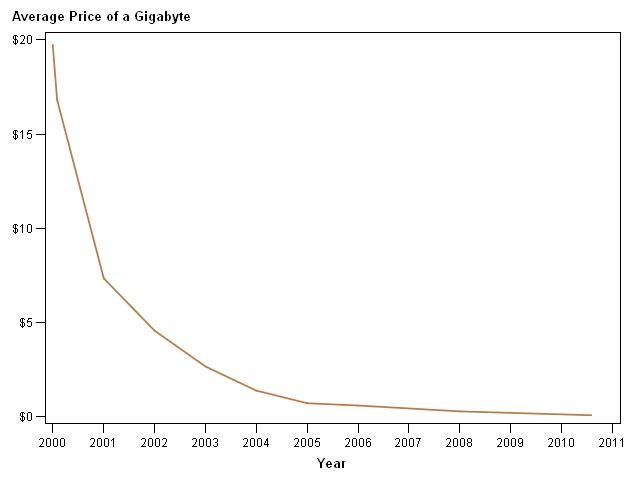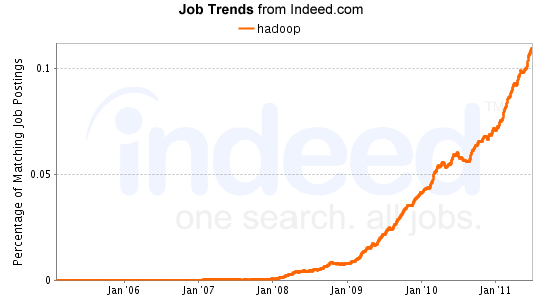I recently attended Gartner’s IT Symposium, Gartner’s premier IT event. Since I’m not a fantasy city fan – sorry Disney, I mean Orlando, or was I in Las Vegas? - I was heavily motivated to attend the conference sessions. Although one can hardly scratch the surface of the content that
Tag: big data

Ask any data warehouse architect what is driving the “big data” craze and he’ll tell you it has to do with the cost of storage and the advancements in distributed computing and most likely will mention Hadoop. Most enterprise data warehouses are constrained by cost and scalability of relational databases.
By now we have all heard how Yahoo uses Hadoop to optimize the user experience by ad and content targeting. We know that Hadoop is well suited for analysis or processing that can be distributed in a parallel fashion on multiple nodes. We know it’s great for managing big data.
Volume, Variety, Velocity – how many times have you heard that lately? The “3 V’s” are commonly used to describe big data by various vendors and analysts. Forrester extends this by introducing “Variability” as a 4th V – this addresses the fact that you need to design for agility due
Talk about a collision, what can be more hyped now than analytics and the cloud - unless you throw in "big data," and well, quite honestly, that's related too! SAS co-sponsored research on predictive analytics in the cloud with James Taylor and Decision Management Solutions. The research focused on the

The term “big data” is all the rage right now, however the term “big” is relative. At SAS we have been called on to do “big data” projects and more importantly “big analytics” projects for many years now. In fact, we are the pioneers of analytics on “big data.” There is
I'm always a fan of moving beyond the buzz, so the new research from Nucleus Research, "Big Data: Beyond the Buzzwords," caught my eye. Besides providing a quick, simple definition ("big data is all about creating, analyzing, and managing large data sets"), The 3-page report does a nice job distilling
The basic big data problem is simple to understand: we create too much data to store and analyze it all. The problem gets bigger, however, when you consider the related factors: our problems themselves are getting bigger, the analytics needed to solve them are more complex and the data is


